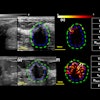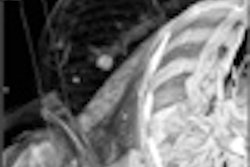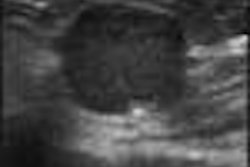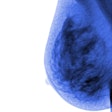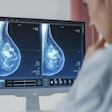In the first major study of digital mammography, the U.S. National Cancer Institute will grant $26.3 million to the American College of Radiology Imaging Network (ACRIN) to compare the effectiveness of digital vs. standard screen-film mammography.
The Digital Mammographic Imaging Screening Trial (DMIST) will be conducted at 19 institutions in the United States and Canada, according to the NCI. The researchers plan to recruit 49,500 women over the next 18 months, during their regular screening mammograms. Each participant will be followed for several years after receiving both conventional and digital mammograms.
While only Waukesha, WI-based GE Medical Systems' Senographe 2000D full-field digital mammography system has been approved by the FDA for clinical use, the study will also incorporate systems developed by Denver-based Fischer Imaging, Fuji Medical Systems of Stamford, CT, and Lorad of Danbury, CT, the NCI said.Principal investigator Dr. Etta Pisano said that while conventional mammography has been well studied, digital mammography is still in its infancy. Before digital mammography is put into widespread use, researchers must determine whether it is at least as effective as conventional mammography in detecting early cancer, she said.
R. Edward Hendrick, Ph.D. from the department of radiology at Northwestern University, Chicago, is co-principal investigator of the study, and Martin Yaffe, Ph.D., from the department of imaging research at the University of Toronto is the lead physicist. Brown University in Providence, RI, will provide statistical coordination, the University of Wisconsin at Madison will conduct a medical quality-of-life analysis, and Dartmouth Medical School in Hanover, NH, will assess the cost-effectiveness of both techniques, the NCI said.
Enrollment begins on October 15, 2001. More information is available at www.dmist.org.
By AuntMinnie.com staff writersSeptember 5, 2001
Copyright © 2001 AuntMinnie.com



